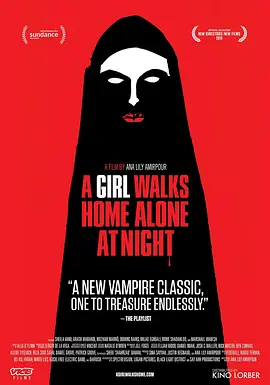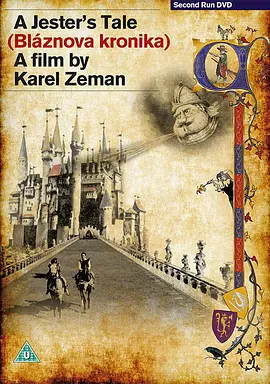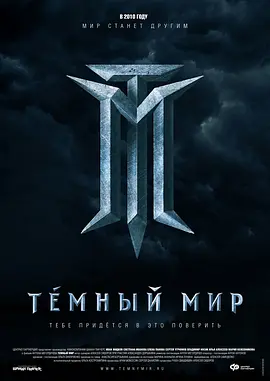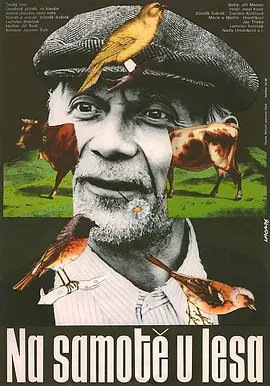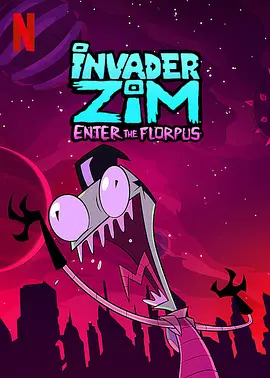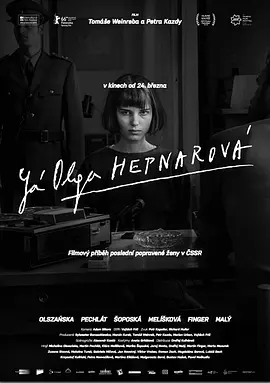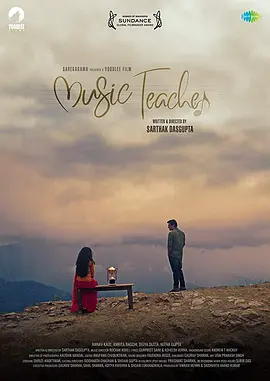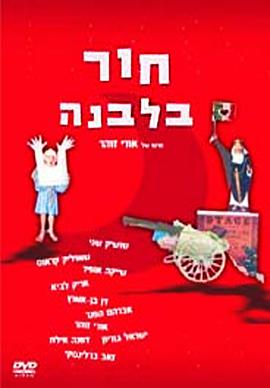-
备注:已完结
类型:恐怖片
主演:希拉·凡德 Arash Marandi 马绍尔·曼尼什 莫赞·玛诺 多
导演:安娜·莉莉·阿米普尔
语言:波斯语
年代:未知
简介:在一个罪恶的都市,一个散发着孤独和死亡臭味的偏远小镇里,只有廖少的人仍旧住在那里,每天撒谎,欺诈,偷窃,滥赌和吸毒来消磨他们那没有目标而又没完没了的时间,可以这样猜想,他们全都在暗自祈祷一个最不寻常的吸血鬼: 一个长相无辜裹着伊斯兰头巾的年轻女孩滑着滑板巡游在街上搜寻牺牲品来满足她的饥渴。本片以华丽和富有感染力的黑白镜头拍摄,是居住在美国的作家和导演 Ana Lily Amirpour的第一部影片,一个西方的伊斯兰吸血鬼,一部冰冷而又伤感浪漫的喜剧, 是今年最为骇人的原创电影。“一个狡诈又性感的藤蔓”,他说。
-
备注:已完结
类型:动作片
主演:斯维特兰娜·伊万诺娃 伊万·日德科夫 叶莲娜·维克托罗夫娜·帕诺娃 S
导演:安东·梅格尔季切夫
语言:俄语
年代:未知
简介:故事讲述在一队学生前去北方一座荒凉的小村庄考察,无意间,他们触动了一所古墓,从而将过去的恶灵放出,超自然的力量席卷了大地,他们中有些人被魔鬼俘获、另一些人则选择孤身与魔鬼斗争。 黑暗生物侵入现实世界 ,人类靠真爱之力拯救世界的科幻影片。by:yakubd.cc
-
备注:已完结
类型:喜剧片
主演:约瑟夫·克姆尔 兹旦内克·斯维拉克 丹妮拉·科拉洛娃 Marta Hr
导演:伊日·门泽尔
语言:捷克语
年代:未知
简介:In this film, a couple, after seeing the lovely job a friend of theirs has done in converting an old mill house into a cozy mansion, moves into an old farmhouse after persuading the current owner, an old man, to leave. When they arrive, he appears to be preparing to leave, but it soon becomes evident that the man has no intention of going to live with his children, and intends to stay in the house. At first, they find his presence unbearable, but when he must go to the hospital, they begin to realize that they care for the feisty old gentleman. ~ Clarke Fountain, All Movie Guide
-
备注:已完结
类型:剧情片
主演:贾斯汀·罗兰 瓦利·维吉尔特 罗德格尔·邦帕斯 理查德·史蒂文·霍维茨
语言:英语
年代:未知
简介:當Zim重新出現並開始進行第二階段征服地球上邪惡外星人計劃時,他的敵人Dib想盡辦法要揭露他的計畫
-
备注:已完结
类型:剧情片
主演:米哈利娜·奥利尚斯卡 Martin Pechlát 克拉拉·梅丽斯科娃
语言:捷克语
年代:未知
简介:1973年,七月十日的布拉格,剛滿22歲的歐嘉開著一輛失速的卡車衝上人行道,造成八人死亡。歐嘉對警察說,她是故意的! 幾天後,地方的報社收到了歐嘉在案發前寄出的自白書,字裡行間不只是她的冷漠與殘酷,更透露出了一個被世人所拒絕的破碎靈魂:中產階級的家庭中她有衣食,卻沒有雙親的關愛,精神狀態與孤獨令她在工作與生活上屢屢碰壁,渴望愛情的她,幾次親密接觸卻無法填補她內心的巨大空虛。她以銳利的目光直視著這個她所不愛的世界,求救的信號來不及抵達,瀕臨極限的歐嘉於是踩下油門。她的衝撞與報復,也將她和人們都推上了無法回頭的道路…
-
备注:已完结
类型:剧情片
主演:Arik Lavie Shaike Ophir Avraham Hef
语言:希伯来语
年代:未知
简介:A comic and episodic satire, the film uses improvisation to illustrate the clash between fantasy and reality in real life. Although conceived in the style of Mekas' "Hallelujah the hills" (1962), it's an authentically Israeli satire, an openly rebellious and individualistic expression that poked fun at the sacred myths of earlier zionist films. The technique of film within the film is used to portray cinema as reflection of the imagination, a miracle based on dreams and fantasies that take on concrete characteristics - parallel to the miracle of Israel, the dream that has become reality. Although not a commercial success, its importance is beyond any measure, though it remains a unique experiment, boldly uncommercial and subversive, out of any context in that patriotic, ideological epoch. A new immigrant, Tzelnik, arrives at the port of Jaffa. He goes to live in the Negev desert where he opens a kiosk in the middle of nowhere. Mizrachi comes along and opens a competing business across the way. The two make a living by selling to each other. As there is nothing there, they decide to create a world out of their imagination. They build a cardboard film set, which slowly takes on real dimensions- the buildings turn to concrete, people come to audition for parts in the "film" (cinema verité style, with Zohar mocking viciously the pretensions of the "actresses") and builders come to build appartment buildings (mocking the glorification of concrete and "heroic" settlement). In one sequence, Arab actors come and ask the filmmakers turn positive to negative, and they're given the role of pioneers who plow the land and sing zionist songs. The imagined world of the filmmakers becomes so real eventually they lose sight of the thin line between fantasy and reality. Along the way there are also many references to other films and genres: the samurai flicks of Kurosawa, westerns, the pop films by Richard lester, the meal scene from Tom Jones and many others. The film was made by a bunch of (very talented) friends Zohar gathered, and they shot it with their own funds, as a “collective flick”, another aspect of it that sets it apart from the rest of the production in the country.
